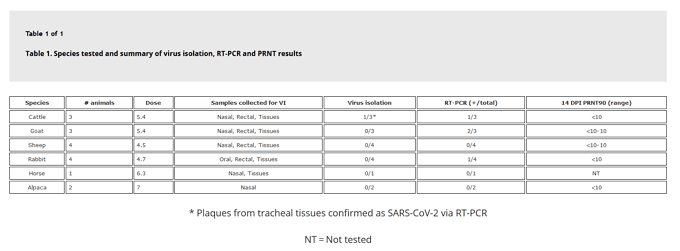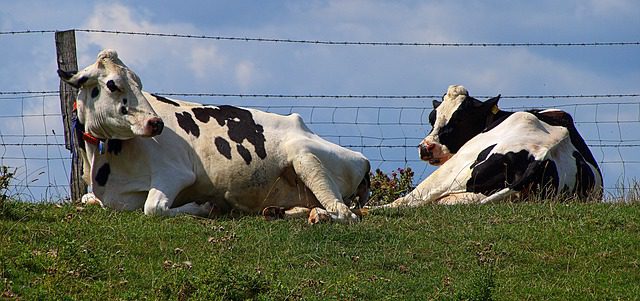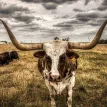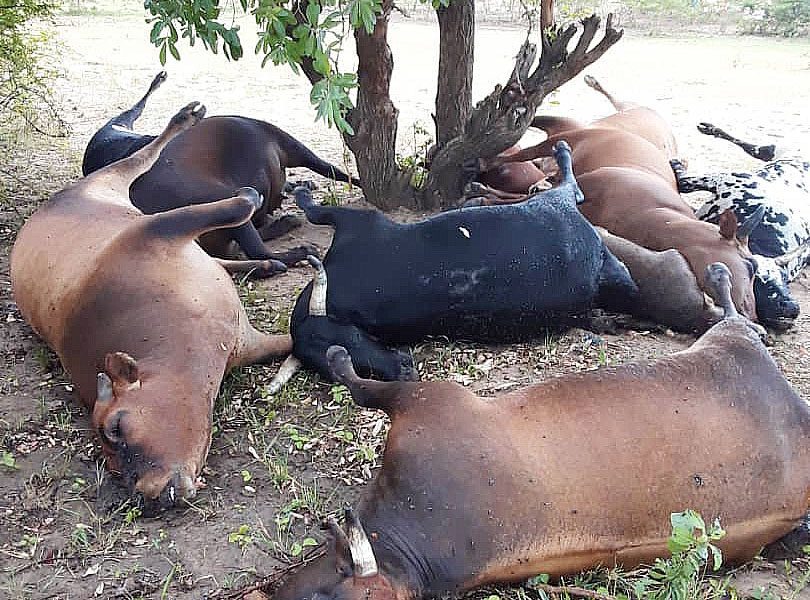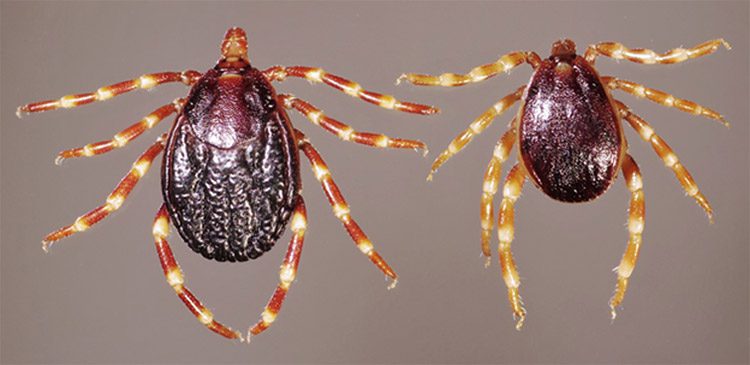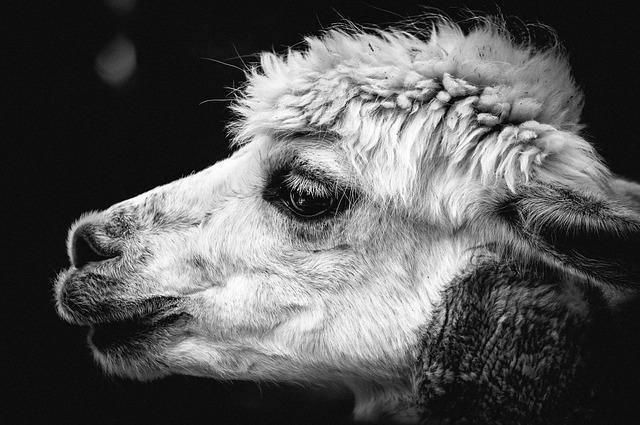
Preprint: Susceptibility of alpaca, cattle, sheep, horse, goat and rabbit to intranasal infection with SARS-CoV-2
“We report pilot studies to evaluate the susceptibility of common domestic livestock (cattle, sheep, goat, alpaca, rabbit, and horse) to intranasal infection with SARS-CoV-2.”.
Highlights:
- None of the infected animals shed infectious virus via nasal, oral, or faecal routes
- Viral RNA was detected in several animals.
- Neutralizing antibody titres were low or non-existent one month following infection.
- Several individual animals (1 calf, 2 goats, and one rabbit) had RT–PCR positive nasal and/or oral swabs,
- Live virus was isolated from the trachea of one calf necropsied on 3 DPI
- While several animals developed low-level neutralizing antibodies within 14 days of infection, the majority were seronegative by 28 DPI
- None of the animals displayed any clinical signs of disease or fever following inoculation
- The lack of shedding in alpacas, which are highly susceptible to MERS-CoV, suggests camelids are unlikely to serve as a source for a recombination event between MERS-CoV and SARS-CoV-2
- These results suggest that domestic livestock species are poorly competent hosts for SARS-CoV-2 and are unlikely to contribute to disease transmission or epidemiology
- No reason to believe that newer human-adapted variants are any more likely to replicate in these poorly susceptible species
Preprint: Susceptibility of livestock to SARS-CoV-2 infection
Image by Daniel Brachlow from Pixabay
** This post was originally published on September 2, 2022 **
